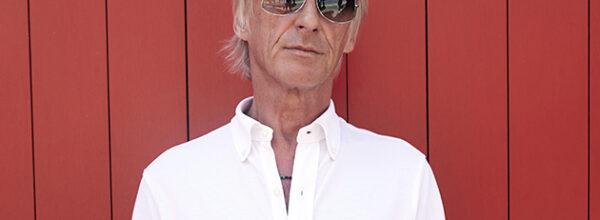20th October 2015
 As the sword of Damocles hangs over the heads of the less economically endowed sections of UK society, with a number of high profile cuts being instigated to social spending (highlighted by the withdrawal of Tax Credits) the topic of what will happen to the poor has never been more relevant.
As the sword of Damocles hangs over the heads of the less economically endowed sections of UK society, with a number of high profile cuts being instigated to social spending (highlighted by the withdrawal of Tax Credits) the topic of what will happen to the poor has never been more relevant.
It is therefore little wonder then that so many have turned out for Stewart Lansley and Joanna Mack’s discussion of their new book Breadline Britain – The Rise of Mass Poverty.
The talk tonight takes place in the deserted Waterstones store in Broadmead, a store in the midst of a shop refit – complete with confused workman wearing worn out overalls and sipping on their tea-break cuppers. It all makes for a somewhat surreal backdrop – almost feeling like this is some kind of metaphorical representation of the very topic up for discussion tonight, and they are all in fact all part of the show.
The oddness of the surrounds are reflected by the somewhat shambolic sound, which stutters throughout (at one point it sounds like Mack is speaking through a wartime radio) and becomes something of a distraction at points.
Once these technical issues are initially overcome, we begin to delve into the topics covered in the pair’s book, the primary focus of which is upon how we are living “through the most sustained attack on the poor”, as successive governments have moved away from socially democratic strategies and toward privatisation and more overtly Neo-liberal forms of economic policies.
Research for their work began back in 1983 and has been built upon with further studies undertaken in 1990, 1999 & 2013, in what they claim is the “most substantial research ever conducted into the state of the poor in the UK”. Bristol has played a large role in this study too, with the University of Bristol providing the bulk of the data and analysis for their work.
What they have found is an alarming increase in the levels of inequality between the ‘have’ and ‘have nots’ of British society, with more and more people living below the minimum levels expected of a modern society.
Together they record that more than twice as many people today report skipping meals as did in the early 1980s, and that twice as many households – 33 per cent – don’t meet minimum living standards. Since the 1990s, the number of households without adequate heating, or enough bedrooms, has tripled. Fewer can pay for healthy food, rid their homes of damp, or put away regular savings.
Comparatively this poverty is felt at a much greater level in the UK than in our first-world peers, with the bottom fifth of the population in Britain nearly 40% worse off than their German counterparts. What’s worse is that these gaps are increasing each year, and are only exaggerated by big business, which extracts money from the national economy at the expense of workers and taxpayers.
Admitting that these are very complex issues that can’t easily be resolved they do prof some potential solutions to some of the economic and social ills presently faced. Higher social spending, a move away from mean testing, higher property tax, stronger collective bargaining, greater investment in ‘big programmes’ are just some of their ideas, although they are at pains to confess no one has all the answers.
Ultimately, what Lansley and Mack’s argument boils down to is what kind of Britain we want to live in. A more meritocratic society, in which wealth is shared more evenly across all levels of the social strata, or one in which inequality is considered good for the poor, because the promise of great wealth encourages innovation and hard work, thus stimulating the growth that helps everyone.
To find out more click here.
Kevin McGough












